#kuroh yatogami
Text




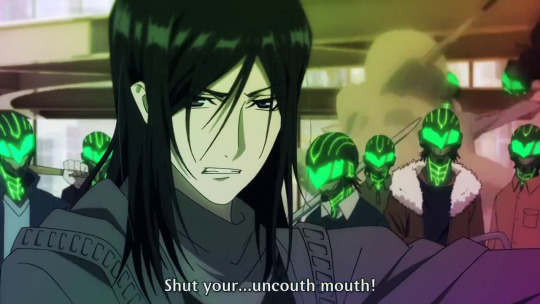

this is one of my biggest comfort movies of all time
46 notes
·
View notes
Text
List of K Project names meanings master post
Remember when someone did a post to explain what the meanings of the names mean with the characters? Well, I am putting it here in this post.
The analysis and meaning of the names had already been done before but this post is about compiling all the meanings of the character's names here. I do not take any credit for the translations and the meanings belong to the original translators I am putting it here for reference.
I put their name meanings here in case someone is struggling to name there k project oc this is used as a reference to help.
The Silver Clan: White Rice Party
Yashiro Isana (伊佐那 社)
Isana (伊佐那), i (伊, that one), sa (佐, assistant, help) and na (那, what?). Yashiro (社, shrine)
Yashiros are temporary shrines set up for deities, this is a reference to how the body known as ‘Isana Yashiro’ (who is, in fact, Hieda Touru) is just a vessel for the silver king Adolf K. Weismann and not his true body much like how yashiro's body is temporarily used for a vessel for his soul.
His surname Isana (伊佐那) is derived from Izanagi (伊耶那岐命, Izanagi-no-Mikoto) and Izanami (伊耶那美命, Izanami-no-Mikoto) this is a reference to the twin heavenly deities in Shinto mythology who gave birth to the islands and made Japan and other Shinto deities of Japanese and represent life and death. This references his real identity as the first Silver King and the founder king being responsible for the birth of other kings
life and death play a part in Adolf and Claudia, which infers How Adolf became the silver king cursed with immortality after Claudia's death forced him to live while his sister was dead.
Besides being named after Izanagi Shiro’s last name has further significance in the story, Isana can be a play on his airy nature but refers to his amnesia in the story and his kind personality before regaining his memories.
Adolf K. Weismann
His real name “Adolf” comes from the Germanic name Adalwolf which means “noble wolf” and "wise wolf”, indicating both his nobilty in German myth wolfs are connected to kings and rulers which references his status as a king. This might infer the term "lone wolf” reference to his loneliness Of being selected as the king cursed to live as his sisters exiled himself from the world out of fear because he doesn’t want to involve himself with anyone that he eventually has to watch die yeah he doesn’t-have it off easily.
His initial K is a reference to the title of the series
Weissmann is a German surname meaning “white man” referencing to Shiro being the silver king.
His nickname “Shiro” can be written as “white" in Japanese. The term used for “Silver King” in Japanese, (白銀の王, Hakugin no Ō) has the character for "white” (haku,白) while “gin” means (銀, silver) in Weismman “Weis” means “white” in “German”, This references that Shiro is the first king the silver king.
Claudia Weismann
The name Claudia means "lame” or “crippled” but could probably be named after Saint Claudia, the Martyr of Rome who was mentioned in the New Testament, this can reference the impression that Claudia gives off that of the image of “the lost saint” and to how she She died saving Adolf life from falling debris from the bombing raid.
Claudia references Izanami as one of the creator gods in mythology She Along with her brother was in charge of the research of the slate that created the kings Izanami’s death references Claudia’s own death.
Neko “Miyabi Ameno” (雨乃雅日)
Ameno (雨乃), Ame (雨, rain), no (乃, from). Miya (雅, gracious. elegant, refined) and bi (日, day, sun).
Neko’s first name Miyabi(雅日) came from Wakahirume no mikoto (稚日女尊, Wakahirume-no- Mikoto.) the kanji “稚日女尊” is miswritten as "雅日女尊” since 稚&雅 look alike. Wakahirume is a weaving deity who served Amaterasu, says Susano threw a horse skinned alive into the room she weaving startled she fell off the loom and pricked herself by the shuttle of the loom this frightened Amatarsu she hid in the cave. this could reference to how Neko used her powers to change his memories hence hiding him from the other clansmen while preventing him from coming out of his metaphorical cave and how she hangs around Shiro.
the kanji can refer to how she is considered good-looking by the cast with sensual curves and her her bright sunny disposition.
Neko’s surname Ameno derives from Ameno Uzume (天宇受, Ameno Uzume) with the kanji changed. Ameno Uzume is the goddess of mirth who danced naked to draw Amaterasu out of hiding in her cave this is a node to how Neko is seen naked in the series and her role in drawing Shiro to come out of the metaphorical cave that he puts himself in. in the Kojiki it described her as “made the deities laugh” I think this can reference to how she brings Shiro happiness.
surname means “of rain” This is a reference to Neko’s love of baths even though she is a cat and rain is used to describe the sadness in her lonely life before she met Shiro
Neko’s name makes the beginning and end of Amatarasus's hiding along with the disaster due to the sun refusing to come out.
Kuroh Yatogami (夜刀神 狗朗)
Yatogami (夜刀神), Ya (夜, night) to (刀, sword, knife, blade) gami (神, god). Kuroh (狗朗), Ku (狗, dog) roh (朗, melodious, clear, bright, serene, cheerful). Kuroh’s surname Yatogami comes from Yato no gami (Yato no gami,
夜刀の神 ) are snake deities in Japanese folklore that are a symbol of enjoying peace and prosperity under a benevolent ruler but also have the power to kill a person and an entire family if someone sets their eyes on them. they are expelled from this original dwelling land the man who expelled them defied them and worshiped them at a place called Yashiro.
this references Kuroh's backstory, the deities rumored to bring familial extermination to anyone who saw them notes to how Kuroh is seen as an angel of death by his family and shunned by his own family after the deaths of his family, then his aunt and uncle. Like Yatogami he had to leave the place he grew up with and later ended up with Yashiro Isana like the Yashiro of the tale
the last kanji in his name refers to Kuroh's personality being honest, calm, and bright, the first kanji in his name means "dog”, and the pronunciation of “kuro” alone means “black in Japanese this contributes to his nickname “black dog”.
Kukuri commented that their names Kuro and Shiro are like Othella this plays into K focusing on contrastionals with the two main characters referring to it.
HOMRA
Suoh Mikoto (周防 尊)
Suoh (周防), Su (周, circumference, circuit) oh (防, protect, resist). Mikoto (尊, noble, exalted)
Mikoto (尊, Mikoto) is taken from the full name of the deity Susano-o no Mikoto (素戔嗚尊, Susano-o no Mikoto). Mikoto is named after the kami Susano, he is Amataerasu’s little brother and was originally in charge of the storms and seas he is known for his violent temper that caused problems, and was expelled from the heavenly realm. This refers to Mikoto's most prominent qualities as the red king being violent. Mikoto can reference his charisma as something he had before he became king
His last name Suoh (周防) comes from an old Japanese province of Yamaguchi Prefecture that is dedicated to a red tortoise in the Nihon Shoki and is well known for its chopper ore (a red color) in the Shoku Nihongi This is a reference to Mikoto being the red king and his hair color. the Yamaguchi Prefecture harbors the Tamanoya shrine that enshrines the creator of the Yata mirror and Yasakani magatama I find this fascinating that it references Yata and Anna from the Red clan.
his surname refers to his quiet kind nature in which he wants to protect others around him.
Izumo Kusanagi (草薙出雲)
Kusanagi (草薙) Kusa (草, grass, pasture, write) nagi (薙, mow down). Izumo (出雲) Izu (出, exit, come out, put out) mo (雲, cloud).
Kusanagi is named after the sword of Kusanagi (草薙剣, Kusanagi-no-tsurugi) one of the three imperial regalia of Japan which the sword itself represents valor. It's a sword that has a connection to Mikoto as with the legend that the sword is seen in the body of the servant that Susano slayed and presented it to Amaterasu to settle an old grievance. Kusanagi being named after a divine sword is a reference to his combat ability to how Izumo is the second strongest in Homura.
Izumo is the name of a shrine (出雲大社, Izumotaisha) that worships Susano's son, Izumo might refer to his role as an information pathway to Homra and his additional role as the one to clean up his clansmen's messes.
Totsuka Tatara (十束多々良)
Totsuka (十束多) to (十, ten) tsuka (束, bundle, manage, control). Tatara (多々良) ta (多, many, frequent, much) tata (多々, very much, very many) ra (良, good, pleasing, skilled)
Tostuka is derived from the sword of Totsuka (十束剣, Totsuka-no-Tsurugi) the sword of the kami susano the blade that Susano uses to slay the serpent. Also used by Izanangi to behead his son Kagutsuchi who is the kami of fire Kagutsu's death marked the beginning of death in the world. The sword was taken by the underworld when Izanagi came to visit Izanami the sword is made of metal a part of the element of earth connected with death. his name is from a kind of sword alludes to his hidden strength, and his role in Homra the peacemaker, and the beast tamer.
Tatara is derived from the tatara method of iron making, the tatara method uses iron sand dread old iron ore and smelts it in a hot fire. There is an old Japanese saying that those who work in Tatara iron making welcome the dead this is because dead bodies in Japanese lore represent the element of earth and iron metal is purified earth. The amount of dead in tatara works was said to increase during the purification process. iron is created from the dead and in the case of the sword also creates more dead people, while poisoning those who work with Tatara with death. his given name is an obvious reference to his overall personality and many hobbies
His entire name is closely connected with death with his given name dead from Tatara and metal/earth and with the beginning of death in the world and underworld from Totsuka no Tsurugi.
His name shows that he is created to die in some respects and his death was meant to be a catalyst for what happened with Homra
Yata Misaki (八田美咲)
Yata (八田) ya (八, eight) ta (田, rice field), Misaki (美咲) Mi (美, beauty, beautiful) saki (咲, blossom, bloom)
Despite the different kanji the word Misaki is used seen with how Misaki (御先, Misaki) can translate to vanguard also a term used to call small-scale divine spirits who are subordinates to high-ranking deities appearing as the deity's omen or messengers. Misaki is a homage to the Hinomisaki shrine (日御碕神社, Hinomisaki Jinja) which is a shrine and lighthouse, the upper shrine is dedicated to Susano, and the lower shrine to Amaterasu notes on how Yata is the vanguard of Homra.
his given name Misaki could be a play on how he doesn’t think before he acts more often than not ending up in all sorts of messes, his given name is revealed in a short story yatas mom named her children after plant theme.
the Yata comes from Yatagarasu (八咫烏) the three-legged crow sun incarnate and a symbol of guidance. Yatagarasu is the three-legged crow that guided Emperor Jimmu on his eastern expedition and is also said to live in the sun.
Yatagarsu is the misaki of Kumano no Ookami (熊野大神, Kumano no Ookami) also known as Susano o. This is a callback to how Yata is the vanguard of Homra serving under Mikoto and later Anna.
Yata is named after the mirror of Yata (八咫鏡, Yata no Kagami) one of the three imperial regalia in Japan the mirror represents honesty and wisdom. this notes how Yata is straightforward and honest about his emotions and his growth and maturity in the series. Yata’s name is connected to Fushimi Yatagarsu and Sarutahiko is known as guides of high-ranking diety both of them have names from guidance kami and are said to pave the way for the rulers. a clever reference to their relationship and their relationships with their respective kings.
eight is a lucky number in Japanese, which may be why he's been lucky so far hasn’t been gravely injured or near death, and rice fields are a source of food which is why he is so full of energy.
Anna Kushina (櫛名アンナ)
Kushina (櫛名) Kushi (櫛, comb) na (名, name, distinguished, reputation)
There is no meaning of Anna's name in Japanese but someone did make a post that might guess her name could come from the Christian Bible Apocrypha [Gospel of Jacob] What is Anna the mother of the virgin Mary Anna is known as a woman dressed in red which is annas signature color when she joins Homura and is regarded as a mystic which references Anna's powers of clairvoyance.
Anna’s last name, Kushina (櫛名) comes from the kami Kushinadahime (Kushinada-hime,櫛名田比売) She is the wife of the kami Susano with is associated with Suoh Mikoto. She was originally going to be eaten by Yamata no Orochi the eight-headed dragon but Susano slew it with Totsuka's sword after making a deal to save her in return for her hand in marriage Susano turned her into a comb to hide while he slew the snake she is named after Kushinadahime who was saved and married subsequently by Susano.
much like her kami counterpart Kushinadahime, Anna was rescued by Mikoto who is the counterpart for Susano. the snake, in fact, is Mizuchi, Mizuchi is based on the Orochi in mythology his kanji is a Japanese homophone of the water dragon. who kidnaps Kushina and he kidnaps Anna and makes her a king through his experiments. Anna’s ability and relationship to sync with Mikoto seem to represent the close relationship between Susano and Kushinadahime. Like Totsuka and Kusanagi her name is chosen because of her counterpart connection to Mikoto's counterpart as a close support of his
Kushi might be a reference to her short hair, "na" is connected to her position as Homra clairvoyant and later red king.
Honami Kushina (櫛名穂波)
Honami’s name (穂波) means “waving heads of grain”, it's mostly like she's a stand-in for Kushinada-hime’s elderly parents who asked for help from Susano. Kushinada-hime mother was a farmer and the goddess of an early harvest and gentle affection, gentle affection is associated with Honami
Rikio Kamamoto (鎌本力夫)
Riki(力,power, strength, strong, strain, bear up, exert) o (夫, man, husband). Kama (鎌,sickle) Moto (本, base, root, origin).
Rikio’s name is similar to the deity Ame-no-tajikarao (天手力男, Ame-no-tajikarao) with having the same kanji. Ame-no-tajikarao removed the cave door Amaterasu was hiding and pulled her out returning light to the world after she hid from Susano. He is said to have Herculean strength and the kami of power and sports this is a reference to Kamamoto's strength and how he gets Yata out of a depressed funk to get him to save Anna.
Saburōta Bandō (坂東三郎太)
San(三, three) ro (郎, son) ta (太, thick, big). Ban (坂, slope, hill) do (東, east)
Bandou is the old name for the Kanto region of Japan also refers to the Bandou Sajuusankashou (坂東三十三箇所, Bandō Sanjūsankasho) a series of 33 temples in the Kanto region dedicated to the goddess Kannon the personification of compassion and kindness also related to the Japanese daimyo named Satake yoshishige who went by the name bandou tarou this is where his entire name comes from. thinking about this it feels unlikely since Bando is considered petty by the rest of his clansmen but he has a strong sense of loyalty and compassion towards his fellow clanmen even Shohei points out his kindness.
Shōhei Akagi (赤城翔平)
Sho(翔, soar, fly) hei (平, level, even, peaceful, flat, board) Aka (赤, red). gi (城, castle)
Shohei’s surname Akagi is named after Akagi Mountain (赤城山), a stratovolcano with lava domes. the mountain itself is deified at Akagi Jinja at the base of the mountain.
his name comes from two navel ships the Akagi, and the Houshou (鳳翔).
Masaomi Dewa (出羽将臣)
Masa(将,general) omi (臣,retainer, subject) De (出, out). Wa (羽, feather)
Dewa’s given name from Dewa Sanzan (出羽三山, Dewa Sanzan) combination of three holy mountains and Dewasanjyodaigongen (出羽三所大権現) which is the veneration of all three mountains on top of Mount Haguro that are important in Buddhism and Shinto also shugendou.
It is said that Hachiko son of Emperor Sushun under the guidance of Yatagarasu was led to the mountains and then he deified them.
Yō Chitose (千歳洋)
Chi (千, thousand) tose (歳, years) ta (洋, an ocean, the East (Orient), the West (Occident).
His last name is Auspicoius also the name of a shrine in Hokkaido, the deified kami is Ichikishimahime (produced in the trial of pledge between Amaterasu and Susano) and Toyoukehime offspring of of Wakumusuhi. Whom Izanami bore as she lay dying giving birth to Kagutsu.
his given came from the navel ships Chitose and Chitose Maru.
Kōsuke Fujishima (藤島 幸助)
Fuji(藤, wisteria) shima (島, island) ko (幸, happiness, good luck). suke (助, help, rescue, assist)
His surname Kosuke can be a reference to his good nature in how he helped others and how he helped Eric out of his situation.
His surname came from Fujishima Jinja (藤島神社) in Fukui prefecture which deifies the military commander Nitta Yoshisada the great military commander during the Nanbokuchou period of Japan.
Eric Sōlt (エリック・スルト) real name Eric Surt
Eric grew up in Europe and his name is an English name, though the way his name is spelled in Japanese "スルト" is the same Japanese spelling for the Nordic god Surtr who plays a major part in Ragnarok carried a flaming sword and his flames with engulf the earth live in the fire realm, Muspell. this references the knife that Eric carries and his red aura.
Genji Kagutsu (迦具都 玄示)
Genji (玄示)Gen (玄, mysterious) ji (示,show), Kagutsu (迦具都) Ka (迦, sword) gu (具, ingredient) tsu (都, capital)
his first name meaning can reference how little people know about him except in flashbacks mentioned by other characters.
Kagutsu’s surname comes from Kagutsuchi (迦具土, Kagutsuchi the kami of fire, he was the child of Izanami and Izanagi his birth killed Izanmi in his rage Izanagi to the sword of Totsuka (also the Ame no Ohabari no Kami,天の尾羽張) and beheaded and dismembered Kagutsuchi. eight pieces of his body became eight volcanos. the death of Kagutsu started the cycle of death in the world. This pertains to the fiery imagery associated with Homra much like his counterpart, Kagutsu’s death was the first major death of the king, and his death by Habari Jin the blue king after which the sword was named. his presence had a huge impact on the events and characters around him.
Secptor 4
Munakata Reishi (宗像礼司)
Munakata (宗像) Muna (宗, religion, sect, denomination, main point, origin, essence) kata (像, image, statue, picture, figure, portrait). Reishi (礼司) Rei (礼, salute, bow, ceremony, thanks, remuneration) shi (司, officer, boss).
his name Reishi alludes to his position in Sceptor 4, being their boss.
Munakata is named after the three Munakata goddesses (宗像三女神, Munakata-no-kami) that were enshrined at Munakata Taisha in Fukuoka Prefecture. the goddesses were born when Susanoo made an oath with his sister Amaterasu, during this oath, she took Susano's sword purified it broke it with her teeth breathed it out the goddesses and their names are Tagorihime-no-Kami, Tagitsuhime-no-Kami, and Ichikishimahime-no-Kami who are the Munakata goddess. The Munakata goddesses are the goddesses of the sea and protectors of sailors and sea travelers. this fits well into his role as a protector using his blue aura to safeguard
the water imagery of Scepter 4 is meant to contrast with homras fire imagery
Seri Awashima (淡島世理)
Awashima (淡島) awa (淡,light, thin, faint, pale, fleeting) shima (島, island). seri (世理) se (世, world) ri (理, reason, logic)
Seri’s name notes Seri is more level-headed than the captain and the only sane one.
Awashima’s surname comes from Awashima no kami(淡島神), the second daughter born of Izanagi and Izanami but was deformed and not considered a god and set out to sea. She helps safe sea travel she is based on the kami for a woman known as teh protector of woman who blesses them in mythology.
This is noted that Awashima is the only woman in Sceptor 4 in combat. and how Scepter 4 is related to protection Her given name Seri comes from Suseri hime (須世理姫), daughter of the god Susano who was known to have helped her husband
Ookuniushi the deity of Izumo Taisha passed a harsh test on her father. Ookuniushi was the ruler of Izumo Provance is the counterpart of Kusanagi Izumo note both Kusanagi and awashima's relationship in the series as the clan's second heads.
Saruhiko Fushimi (伏見猿比古)
Fushimi (伏見) fushi (伏, bend down, bow, cover) mi (見, see, hopes, idea). Saruhiko (猿比古) saru (猿, monkey) hi (比, compare, race, ratio) ko (古, old)
Fushimi comes from Fushimi Inari (伏見稲荷) the grand shrine of inari, and is the daughter of Susano. Although a fox it can also take the form of a snake/dragon a water deity. Fushimi has strong connections with both Susano who is Mikoto’s counterpart and sea imagery which is represented in Sceptors 4.
Saruhiko’s name references Sarutahiko Ookami (猿田彦) leader of the earthly kami a symbol of strength, guidance, and martial arts. who guided Ninigi, Amatarusu's grandson who came to earth with the three scared treatures later enshrined at Fushimi Inari Taisha later in the myth the god Sarutahiko died by drowning. the sacred treatures are connected to homra which are based on the sacred three treatures. Sarutahiko is related to the Yata name Yata no kagami is also connected to Sarutahiko, fushimi and yata are both named after kami of guidance, their frequent use in vanguard-like positions shows that they are both people who pave the way or guide the way.
the name Saru was given to him by his father In the story because he mentioned his son looks like a monkey which he himself hates to be called because it reminds him of his father.
like most Scepter 4 people he's named after a Japanese naval ship
Fushimi Niki (伏見仁希) and Kisa Fushimi (伏見木佐)
Fushimi (伏見) fushi (伏, bend down, bow, cover) mi (見, see, hopes, idea). Niki (仁希) Ni (仁, benevolence) Ki (希, to hope)Fushimi (伏見) fushi (伏, bend down, bow, cover) mi (見, see, hopes, idea). Kisa (木佐) Ki (木, tree) sa (佐, assistant)
Niki Fushimi is named after Ninigi (瓊瓊) he appeared in the story coming to earth with the three scared treatures and being guided by Sarutahiko his son's name and is married to Konohana Sakuya the namesake of his wife.
For Kisa Fushimi, Konohana sakuya (木花開耶姫, Konohanasakuya-hime) is the kami who was the inpiration for Kisa’s name. In the story, she was sent to marry Ninigi and had three children with him representing mountains, fire, and water. Her older sister Iwanaga-hime was originally supposed to marry Ninigo but was rejected the lives of the humans would be sort as the cherry blossoms, this bares some semblance like the story where Kisa married Niki solely for his talent nothing else, and how ayas mother hates Fushimi mom
there interconnected to fushimi in a way as seen in there myth how the charcater in the myth are interconnected.
Oogai Aya (大貝阿耶)
Oogai (大貝) Oo (大,big) Gai (貝, shell). Aya (阿耶) A (阿, to flatter; to pander to the ridge (of the roof); eaves) ya (耶, question mark)
the kanji for ayas name is a reference to the story of the kami Sarutahiko Ookami, while he was fishing off of the coast of Azaka he got his hand stuck inside a large clam and drowned. her surname references the clam that Sarutahiko was stuck in.
Her name Aya (阿耶) is taken from Azaka (阿耶訶), the place where Sarutahiko drowned. This is a reference to how her presence in the story is meant to drive a wedge between Fushimi and Homra
Himori Akiyama (氷杜 秋山)
Himori (氷杜) Hi (氷, ice) mori (杜, forrest), Akiyama (秋山) Aki (秋, autumn) Yama (山, mountain, hill)
Akiyama was named after Akiyama no shita Biotoko (秋山之下氷壮夫) the kami of autumn frost.
Yūjirō Benzai (弁財 酉次郎)
Yūjirō (酉次郎) Yu (酉, the Rooster, the tenth of the twelve Earthly Branches) ji (次, next, order) ro(郎, son), Benzai (弁財) Ben (弁, valve, petal, braid, speech, dialect, discrimination, dispose of, distinguish, conical cap) zai (財, property; riches; wealth)
Benzai is named after Benzaiten (弁財天) one of the seven deities of good luck and the goddess of water
Ryūhō Kamo (劉芳 加茂)
Ryūhō (劉芳) ryu (劉, weapon of war, logging axe, kill en masse, peeling (paint off a wall, etc), sparse, faded) ho (芳, fragrant, virtuous, beautiful), Kamo (加茂) ka (加,add, increase) mo (茂, lush, luxuriant)
Kamo is tricky because there is not a concrete reference of a deity he is based on but here is about the possibility of what he was named after.
one is that he could be named after Kamo-no-ōmikami [迦毛大御神], also known as Ajisukitakahikone is the deity of agriculture and thunder is the son of okuninushi, and takirihime one of the three Munakata goddesses and father of a rain kami when he was a child he screamed so loudly he had to be put in a boat and sailed around japan until he calmed down. That's the most likely possibility due to how it's related to Munakata and the water imagery and the short story of the crying baby in the manga, and note that he was a father.
Andy Dōmyōji (道明寺 アンディ)
Dōmyōji (道明寺) do (道,road) myo (明, bright) ji (寺, temple)
his name is not a Japanese name but it might be based on someone, his name Andy is a shortening of Andrew, a Christian saint who was originally a fisherman. Her surname
Doumyouji came from Doumyouji Tenmanguu (道明寺天満宮) a large shrine in Osaka that enshrines the Tenjin god of scholarship, the ancestral kami of the Izumo clans, amenohohi one of the male children produced during the trail by pledge between Amaterasu and Susanoo
Tatsuya Enomoto (榎本 竜哉)
Enomoto (榎本) Eno (榎,Chinese hackberry tree) moto (本, blades of grass and tree trunks falcons) Tatsuya (竜哉) Tatsu (竜, dragon) ya (哉,how, what, alas, question mark, exclamation mark)
His surname is taken from Enomoto-jinja (榎本神社) in Nara the kami who inhabits it is Enomoto kami and the currently enshrined deity was considered to be Sarutahiko the god who died by drowning.
his given name means dragon, dragons are noted to be associated with water hence the water imagery of Sceptor 4
Daiki Fuse (大輝 布施)
Daiki (大輝) Dai (大, big, great) ki (輝, brightness) Tatsuya (竜哉) fu (布, cloth) se (施, out)His given name means “alms” in Buddhism
the act of giving people things with a loving heart there was a shrine named fuse (布勢神社) in the Okayama prefecture
Ren Gotō (五島 蓮)
Gotō (五島) go (五, five) to (島, island) Ren (蓮, lotus, water lily)
his surname comes from the Goto Islands (五島) which has an ancient style of sacred Shinto song and dance the goto kagura.
his first name is a reference to Buddha, the lotus is the flower that bloom for the buddhas birth a beautiful flower that blooms in the mud said to represent to be how bodhisattva’s save people from a dirty world.
Akira Hidaka (日高 暁)
Akira (暁, daybreak) Hidaka (日高) Hi (日, sun, day) daka (高, tall, high)
Hidaka is named after the Hikohohodemi no Mikoto (日高日子穂穂手見命) a hunter who descended into the sea and ended up marrying the princes of the sea kami, toyotama hime lived under the sea for a while. Akira maybe a variation of Hidata both related to the sun.
Jin Habari (迅 羽張)
Jin (迅, swift, fast) Habari (羽張) Ha (羽, feather) bari (張, lengthen, counter for bows & stringed instruments, stretch, spread, put up (tent).
His name comes from an alias of the Totsuka no Tsurugi, Ame no Ohabari no Kami ( 天の尾羽張, Heaven’s Tail Feather) which is the sword that Izanagi used to slay Kagutsuchi. Ironically habari was not able to succeed in slaying Kagutsu himself.
Gen Shiotsu (塩津 元)
Gen (元, Ex) Shiotsu (塩津) shio (塩, salt) Tsu (津, haven, port, harbor, ferry)
Shiotsu is named after the Shiotsu shrine, the kami enshrined there is Shiotsuchinooji the kami of salt-making protector of fishermen who comes to the aid of Hoori by guiding him to the palace of the sea.
Gōki Zenjō (善条剛毅)
Goki (剛毅, fortitude) Zenjō(善条) zen (善, good) jo (条,article)
his first name zenjou comes from the Yorozo Code a set of rules in the Nara period Japan, you were considered good or righteous if you had 1) good ethics 2) cleanliness 3) fair judgement, and 4) you devoted yourself to your duties with strength. his first name Goki means “firmness of character” or “fortitude.” which is very fitting towards his character. His entire name matches his personality and character towards his duties
Takeru Kusuhara (楠原剛)
Takeru (剛, sturdy, strength) Kusuhara(楠原) kusu (楠, camphor tree) hara (原,field, plain)
Takerus' name comes from the kami Isotakeru (五十猛神) who was an offering of Susano making him a sibling of the Munakata goddess. he went around Japan planting forests with the seeds he had the trees he planted were camphor trees which were used in shipbuilding, he was the Guadian diety of ships providing a safe passage because his trees made up the boats the kanji of his surname reflects this.
his name has something to do with his role in the story, there is an old tradition among people whose work involved the sea where the body of a drowned man was used as a talisman of a type of lucky charm the dead body represented the element earth in the five elements, and earth trumps water, so it was said to provide safety and strength in work to those who worked and traveled in the sea. Kusuhara is named after the kami who provides safe passage like a talisman of the drowned man making Sceptor 4 more stable and stronger
JUNGLE
Hisui Nagare (比水 流)
Hisui (比水) Hi (比, compare, race, ratio) sui (水, water), Nagare (流, current’, ‘flow’, ‘forfeit)
Hisui has a connection to the god Hiruko (水蛭子 or 比留子) later known as Ebisu (恵比須, 恵比寿, 夷, 戎) his name comes from Ebisu with the same kanji in his name from, he was the deformed leach child of Izanagi and Izanami and was set adrift later he became Ebisu well known for maritime connection.
his first name Nagare (流) seems to connect to Hiruko as “流” can mean “exile” which Hiruko was first in exile. the heavy water imagery as the reading of the kanji relates to a stream of water or something adrift.
this description of Nagare being referred to as the god Ebisu matches with Nagare’s status as king role and character in the series.
Ebisu was abandoned by his parents in the myth which referenced Nagare losing his family during the creator accident. in the myth Ebisu is cribbled and deformed this can infer how Nagare lost his heart from the kagutsu creator and how his life was kept alive because of the slate and he is stuck to a wheelchair Nagare is restrained in a wheelchair keep his strong power in check.
ebisu related to prosperity can infer how the jungle is popular with users and with others growing in popularity over the years.
the ocean imagery is how the internet is described as an ocean or sea with the clan being related to an internet chat group and how he swims through the web and technology with his powers
Hisui means "like water”, and may refer to his speed and power (water can be powerful as well) when he uses his king aura or the domain of his clan which resides in the Internet which can be considered the ocean of the web.
Nagare could also mean that but could means “forfeit” which refers to how he lost his own life two times
Tenkei Iwafune (磐船天鶏)
Iwafune (磐舟) Iwa (磐, rock, crag, cliff) fune (舟, boat, ship) Tenkei (天鶏) ten (天, heaven, sky, imperial) kei (鶏, domestic chicken).
Otori and Tenkei both point to his loss as he points it out himself in the dream of Green and Iwafune is meant to compliment and counter Hisui Nagare.
Iwafune Tenkei (磐船天鶏) is named after Torinoiwakusufune (鳥之石楠船神) he is the kami of ships who made a boat for the kami hiruko who was abandoned. he acted as the deputy and messager. in the myth, it was said that he was the boat traveling from the land of Kami to the human world. which traveled to the central lan of reed plans from heaven with the speed of the bird and stability of a rock.
Torinoiwakusufune carrying hiruko on a boat references Iwa’s relationship with Nagare that he was the one who was taking care of his needs and the one who kept his powers in check with his fog and restricted him in a chair to prevent his powers from going out of control being metaphorically boat in a way that helps him get from one place
to another and a rock to keep him stable and is the second command of the jungle despite being a king. might provide a foreshadowing of his true identity as the grey king and his clan cathedral that acts as a sanctuary until the creator's accident.
Iwafune is also from Iwafune Shrine [磐船神社], these shrines are dedicated to a ship the shaped rock believed to be the vessel used by deities when descending the earth.
Tenkei (天鶏) is a Chinese constellation “celestial cock” (天雞) which is the rooster in heaven that crows at daybreak. leading roosters on earth to crow after it. this is a reference to his real name Otori which has a bird in the kanji further hinting at his true identity as the grey king.
Seigo Otori (鳳聖悟)
Seigo (聖悟) sei (聖, holy, sage, priest) go (悟, enlightenment, realize, understand), Otori (鳳, large bird refers to either the peng (a Chinese mythological giant bird said to be able to transform into a fish) or the Fenghuang (the Chinese phoenix).
“Seigo” refers to his position as king to cathedral whitch seems to be a church theme clan, looking at "go" might also refer to how he eventually faced the irony of his power as a king
his entire name referenced the god Torinoiwakusufune seen in this role as his former grey clan and his role in the jungle and to Nagare.
Yukari Mishakuji (御芍神 紫)
Mishakuji (御芍神) mi (御, honorable, manipulate, govern)shaku (芍, peony) ji (神, gods, mind, soul) Yukari (紫,purple)
the color purple in his name references his image color his name comes from the ancient kami
Mishakuji (御社) is one of the Sai-no-Kami [塞の神], which means “deity of boundary”. he is the guardian deity of travelers also crosswords and boundaries he guards the boundary of the village or crosswords to prevent evil spirits, disease, or disaster from entering the village.
this is a reference to how Yukari acts as a bodyguard to the green clan being their strong muscle and not letting anyone get it.
Yatogami is the deity of the valley which was expelled into the mountains by Matachi and his men for cultivation then drew a boundary between the land of humans and the land of deity keeping Yatogami on the other side.
both Kuroh and Yukari are written as rivels which is seen in their names.
Miwa, Mishakuji, and Yatogami were all names of serpent deities this is a reference that they were from the colorless clan
Sukuna Gojo (五條スクナ)
Gojo (五條) go (五,five) jo (條, article, clause, item, stripe, streak,logic, paragraph,)
the logic aspect in his name fits him being a video game and combat hustler, if you put "go" and "jo" together then it might mean "a winning streak” another game-related reference
Sukuna is named from Sukuna-hikona (スクナヒコナ) is the medicanal kami is the kami riding the wave in a boat from the pod of the flowering vine. He is paired with Onamuchi and the two kami worked together to form the land and invent medicine. he is the deity who aided Ookunimushi in building his nation in myths he stayed beside Ookunimushi all the time. he is the deity known as the "Small Man of the Renown” The Nihon Shoki refers to him as a brat. Looking at this it matches Sukuna to a t, the part with Sukuna being paired and helping Ookunimushi in the myth is his friendship with Nagare and how he helps him with his goals. sukuna is seen riding the waves on a boat is a reference to Iwa who is named after the boat deity. the "Small Man of the Renown” Sukuna proved to be capable in his own right in the use of jungle and how he completes his missions. sukuna being refered to as a brat in muthoology references sukunas young age and bratty personality
Gojo came from Gojo-ten Shrine [五条天神宮] shrines dedicated to Sukuna
Douhan Hirasaka (平坂 道反)
Hirasaka (平坂) Hira (平, flat) saka (坂, slope), Douhan (道反) dou (道, road) han (反, anti)Her surname Hirasaka comes from
Yomotsu Hirasaka [⻩泉比良坂], the boundary between earth and hell. Dohan (道反) is from
Chikaeshi no Ookami [道反大神], the huge rock at Yomotsu Hirasaka which Izanagi used to block the hell’s entrance after he escaped.
this references how she helped Fushimi in season 2 from getting killed by jungle users by helping him escape and how she saves the other characters from death.
Kotosaka
Kotosaka has numerous meanings but the meaning I would choose for him would be Kotosaka no kami (言離神] the alias of Hitokotonushi-no- kami [一言主神, literally the God of One Word) and Yomotsukotosakanoo (aka Kotosakanoo-no-Mikoto), a kami of the underworld it means to sever a relationship in the Nihongi he appeared alongside Hayatamanoo (速玉之男神) to sever the relationship between the original kami, Izanagi, and Izanami he was there to hold Izanangi to his oath when Izanagi spoke the words of divorce at the Yomotsu Hirasaka. these meanings fit Kotosaka himself this is in how he was present during Nagare's death and stayed by his side while he was dying and how Kotosaka is always seen talking in one word or repeating something that was said and is used as a medium for Nagare for speaking to others
The colorless clan
Ichigen Miwa (三輪 一言)
Ichigen (一言) ichi (一, one) gen (言, say, word), Miwa (三輪) Mi (三, three) wa (輪, wheel, link, loop)
"wa" can refer to how he can see the future aka the wheel of fortune and may refer to the fates of his two students. if you look at "mi" and wa together it may refer to his and his students' lives; the way their lives played out may have been something that has already been foreseen. Ichigen might refer to his nature as the “man of his word or “a man of a few words” a play on his art haiku composition.
Miwa comes from Oomiwa jinja (三輪明神) miwa comes from Mount Miwa, the kami of the mountain Oomononushi, is a serpent holding power over good harvest, sake brewing and protection from infectious diseases but is also known for his ability to curse. Ichigan comes from
Hitokotonushi-no- kami [一言主神] sharing the same kanji in the deity's name grants one word wishes to the deity and introduces himself to the emperor as “I am Hitokotonushi-no-kami of Katsuragi, who proclaims evil in a single word, good in a single word.” like Oomononushi he encompasses both good and evil possibilities depending on careful choices.
this is a reference to his art of haiku which Kuroh brings with a recorder. This can reference that he can see the future and predict what is going to happen with a few words
Kokujoji Daikaku(國常路 大覚)
Kokujōji (國常路) Koku (國, country), jō (常, usual, normal, regular), ji (路, path, road, distance), Daikaku (大覚) dai (大, large, big, great) Kaku (覚, learn, remember, awake).
jo might refer to himself before he became king and his way of running things has been the normal ji for the country of Japan after he became king. “great learning” references his clan's ability or the great remembrance of his friends who guided him through the years.
his name Koukujouji (國常路) is a reference to Kunitokotachi no Kami ( 國常立神). He is the first of the three kami born after heaven and earth were born out of chaos and is considered the very representation of Japan itself and one of the founding kami. His first name Daikaku (大覚) comes from Daikaku-ji (大覚寺) a Buddhist temple in Kyoto that holds the Five Knowledge Kings they have much knowledge and power which allows them to influence reality known to use their power to get rid of evil influences. this is pretty self-explanatory this references to his bond with the Silver King who references Isanagi and the Dresidian trio being one of the first kings that shaped Japan
He is the backbone of the contry and its entire properoty was on him and he makes sure evil infleunces like nagare and mizuchi are wiped out.
Kukuri Yukizome (雪染 菊理)
Kukuri is named after Kukuri hime no kami (菊理姫神) the goddess of meditation, negotiation, matchmaking, and marriage. She mediated on behalf of Izanami and Izanagi when Izanagi talked to her during the month of the underworld and reconciled them, bringing peace to the world mediating between the living and the dead. This matches Kukuri very well
reflects her cheerful personality and friendship with Shiro she is sociable and helpful she helps mediate the chaos of the awakening superpowers and she is Shiro's link to a normal life.
Hieda Touru (稗田透)
Hieda (稗田) Hie (稗, Japanese barnyard millet) da (田, paddy, field), Touru (透, transparent permeable, porous passable, (in the sense of objects spaced far enough apart to allow something in-between)
His first name Tooru is jampacked of meaning this can reference his lack of presence and his harmless appearance and ability to blend in the background which is why he was chosen by Nagare to be the host body for the colorless king. and that he was once a vessel for the colorless king to inhibit.
Hieda may refer to Hieda no Are (稗田 阿礼) a person known for being vital to kojikis completion. little is known about Hidea no Are including gender but some theorize they may be distant descendants of the goddess Ameno-Uzume. This is a reference to his appearance in the story as early as completing the plan for the silver king to be drawn out.
Saya Konohana (木野花 沙耶)
Saya (沙耶) sa (沙, sand) ya (耶, question mark), konohana (木野花) ko (木, field, wilderness) Hana (花, flower, blossom)
Saya’s entire name comes from Konohanasakuya-hime (木花開耶姫) the kami of cherry blossoms and mt fuji she was said to be in charge of volcanos and has an explosive temper this is a reference to her uncontrollable power in the beginning in the route.
Mitsuha Kurayama (闇山 光葉)
Kurayama(闇山) Kura (闇, dark) Yama (山, mountain), Mitsu (光, light), ha (葉, leaves)
the kanji in the given name doesn't match the kami I was thinking of but if there's one thing that his surname is Kurayama (闇山) in fact If I were to guess what he is based on I would think it is Kuramitsuha (闇御津羽神 – Ravine Water Rushing). Kuramitsuha is one of the two kami born from the blood of Kagutsuchi after he was beheaded by Izanagi, the blood caught on the sword hilt formed this kami.
another kami would be Kurayamatsumi (闇山津見神 – Mountain Gorge Majesty) the kami born from the body of Kagutsuchi after he was beheaded and was born from Kagutsuchi’s privates
I find his connection to the kami Kagutsuchi is a reference to Mitsuha’s obsession with becoming Kagustsu in the series which led to a twisted fascination with Suoh.
Somei Nazumi (初衣 泥)
Uhijininokami, Suhichininokami ※God of the earth (宇比邇神 須比智邇神)
Somei Chika (初衣 チカ)
Uhijininokami, Suhichininokami ※God of the earth (宇比邇神 須比智邇神)
Unno Yutaka: (雲野 征鷹)
Toyokumo no Kami (God of Clouds) (豊雲野神)
Todokoro Suwako: (十所 スワ子)
Homi Suwa Jugosho Shrine (Homisuwa Jugoshojinja) (穂見諏訪十五所神社)
Tamataro Okuma: (大隈 玉太郎)
Kumano Hayatama Grand Shrine (Kuma no Hayata Taisha) (熊野速玉大社)
Gora is kind to give us the origin of the names of the characters who came from K side Gold.
when I was writing this I learned that each character in k is connected to each other in some way as seen in the origin of their names. I didn’t cover all the characters but If I did happen to miss some of the characters feel free to put your input in the post. I made this post as a reference to help others with naming their once, I don’t take any credit for the translated meanings in this master post I hope this will give a better idea of how to name your OC.
#k project#k name meanings#name meaning#anna kushina#tatara totsuka#totsuka tatara#mikoto suoh#suoh mikoto#izumo kusanagi#yashiro isana#yatogami kuroh#kuroh yatogami#Mitsuha Kurayama#Adolf K. Weismann#Claudia Weismann#Miyabi Ameno#Yata Misaki#Honami Kushina#Munakata Reishi#Seri Awashima#Saruhiko Fushimi#Oogai Aya#Takeru Kusuhara#Hisui Nagare#Tenkei Iwafune#Yukari Mishakuji#Sukuna Gojo#Douhan Hirasaka#Ichigen Miwa#Kokujoji Daikaku
39 notes
·
View notes
Text
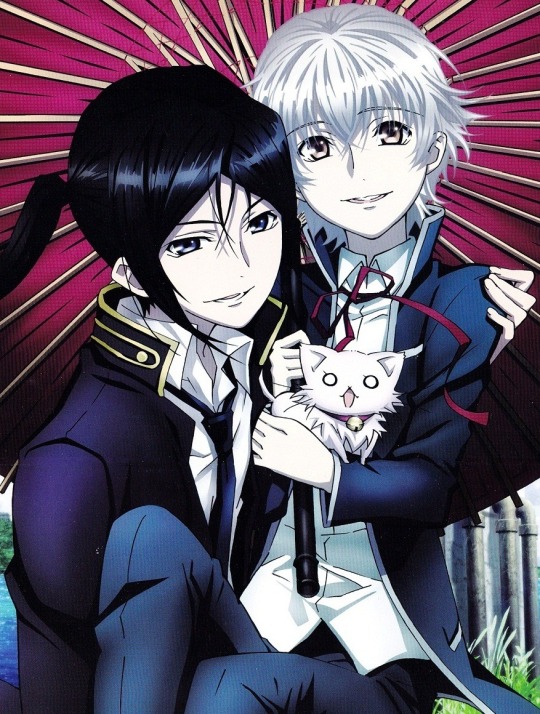
Yatogami Kuroh x Isana Yashiro
K Project
22 notes
·
View notes
Text
Shiro: Talk dirty to me~
Kuroh: Inflation is a serious problem and lumber prices are at a high.
Shiro: Wha-
Kuroh: The economy is in shambles.
#k project#kushiro#FIRST KURSHIRO POST LETS GO#incorrectkprojectquotes#kuroh yatogami#yashiro isana#silver clan#whitericeparty#they are so cute#i love them#i will post more of them#i promise#teehee
23 notes
·
View notes
Text
ROUND 1: POLL #14


ROUND 1 POLLS [HERE]
PROPAGANDA BELOW
Yashiro Isana/Kuroh Yatogami:
Your typical black-haired/white-haired soulmates, it's even in their names - kuro (black) and shiro (white)
Kuroh's hobbies are "cooking and all chores" so he is perfect for Shiro who can't even cook to save his life. Shiro canonically jokes Kuroh is like a wife (he is). and please that scene where Kuroh pulls him in to protect him and he just blushes
[SPOILERS] Their meeting may be accidental but their destinies were always meant to intertwine. Kuroh was the vassal of the previous colorless king who asked him to kill the next colorless king (Shiro) if he was evil. from the very first moment he started doubting that Shiro was a murderer, he gave him plenty of chances to prove his innocence, even taking care of him and cooking for him in the process when he didn't have to. Kuroh went from trying to kill Shiro to being his bodyguard then being his loyal partner.
some gifs:
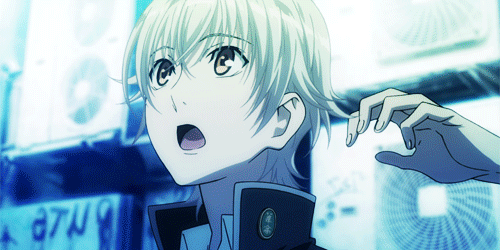
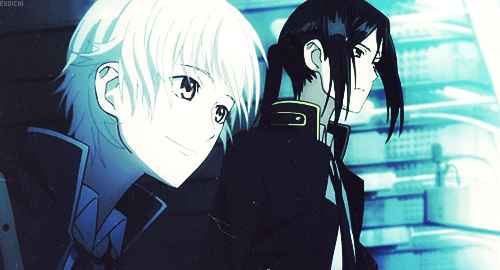
Hercules/Iolaus:
They've been partners for 15+ years. They would die for each other. And quite literally will journey to the Other Side in order to get them back.
This is how cute they are together:
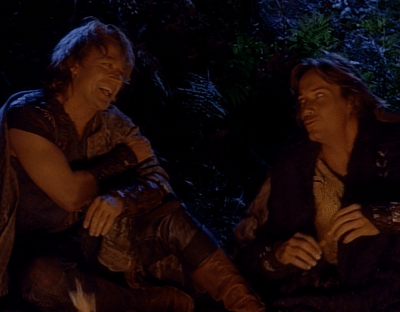
#yashiro isana#kuroh yatogami#yashiro isana/kuroh yatogami#kurohshiro#k project#hercules#iolaus#hercules/iolaus#hercules x iolaus#hercules the legendary journeys#tumblr poll#tumblr bracket#mlm ship#mlm ship poll#mlm ship bracket#mlm ship bracket tournament#mlm ship bracket 2024#mlm ship bracket tournament 2024#fourthr1
10 notes
·
View notes
Text
Introduced my one friend to K Project yesterday, here are some highlights so far:
• Kuroh is his favorite so far. His impression of Kuroh is “He’s like a himbo housewife, he’s so ridiculous!”
• He thinks Scepter 4 are kind of scary.
• He identifies every character by arbitrary traits except for Kuroh. Saruhiko is “Virginity guy” Misaki is “Beanie Boy” Awashima is “Mini Skirt” Munakata is “Puzzle Boy” and Neko is “cat”.
• “This isn’t even yaoi bait anymore, this is just straight up yaoi, Kasper.” - My friend when I subjected him to K Project or as he calls it “Project K”.
• He calls Mikoto “The guy in jail.”
• He started liking Shiro more after learning that Shiro is a good liar.
• “It seems like HOMRA are supposed to be the bad guys but Scepter 4 are the ones taking away everyone’s human rights!”
• “I’m so confused, what is wrong with this anime??”
• We both laughed at the outro.
• “There goes the budget.” - both of us every time Yata’s skateboard shows up on screen.
• Told my friend that Fushimi can canonically recognize Yata's scent and he just looked at me with bewilderment, pinched the bridge of his nose and said something along the lines of, "What in the fucking Omegaverse…?” (Paraphrased).
#k project#kuroh yatogami#isana yashiro#yata misaki#saruhiko fushimi#munakata reisi#mikoto suoh#seri awashima#long post
35 notes
·
View notes
Text
Part 7 cause i am in the middle of my exams week



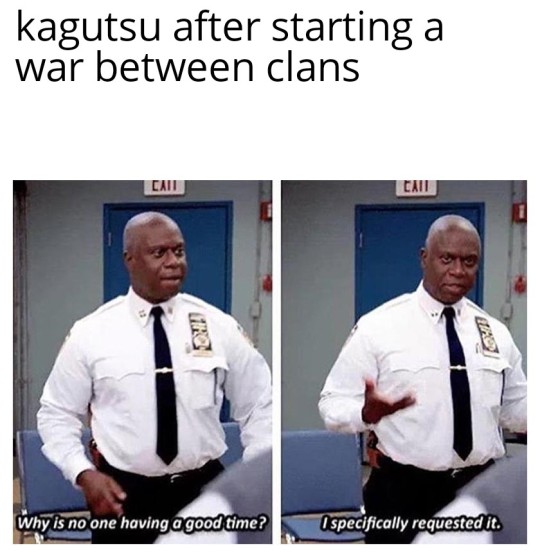




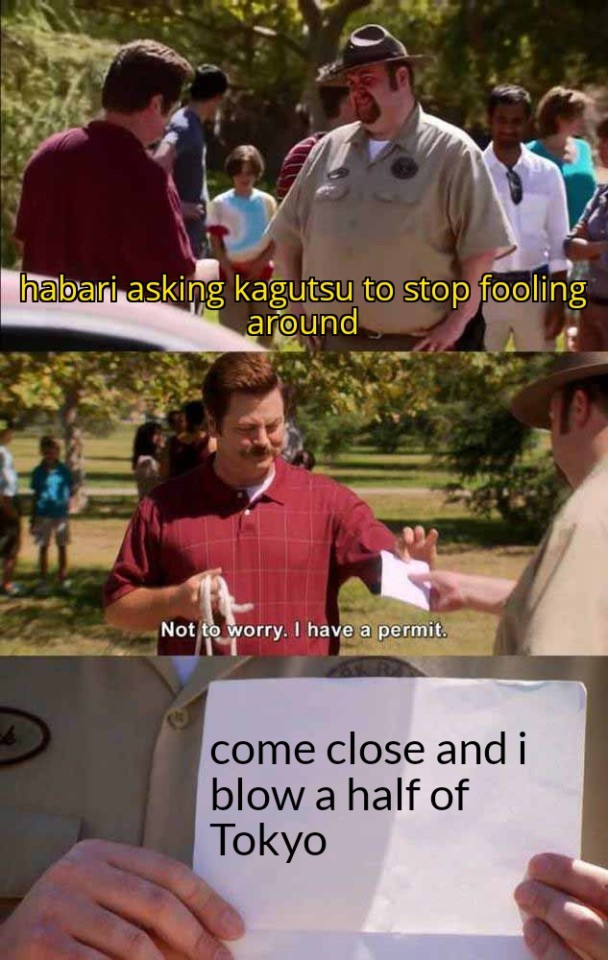

This one is only about the silver clan the past clans and a little bit about the green clan
#i did my best cause outside homra isn't my comfort zone#i found out i don't know much about the green clan outside the show#homra#anime#k project#isana yashiro#neko#kuroh yatogami#nagare hisui#iwafune#habari jin#zenjo goki#Gen Shiotsu
27 notes
·
View notes
Text
Mini Profiles: Kuroh Yatogami
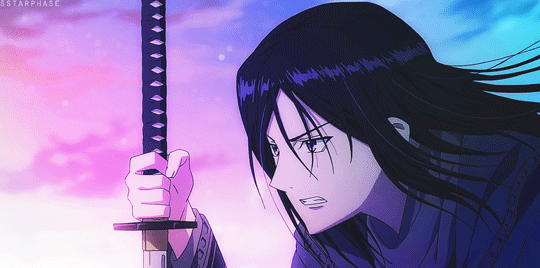
Yandere type: Obsessive
Traits: Protective, Stalker, Worshiper, Smothering
Is it Instant love or one that grow over time:
It grows over time, usually a year for him to fully turn yandere over his darling.
Delusional level (0-10):
6, his delusions are high, yet he can somewhat get broken out of it even if for a moment.
How will do they hide their yandere side:
His overprotectiveness does show more than anything else which in turn does hide his yandere side for him.
Danger level (0-10):
10, when it comes to his darling, he is really to do anything to keep them safe and keep them close.
#yandere#yandere mini profile#mini profiles#k project x reader#yandere k project#k project#kuroh yatogami#yandere kuroh
16 notes
·
View notes
Text
Sugita Tomokazu and Ono Daisuke


Anime: K & Attack on Titan
Sugita as Munakata Reisi & Marlo Freudenberg
OnoD as Yatogami Kuroh & Erwin Smith
#erwin smith#munakata reisi#attack on titan#shingeki no kyojin#k project#munakata reishi#yatogami kuroh#ono daisuke#tomokazu sugita#marlo freudenberg#kuroh yatogami#sugita tomokazu#daisuke ono
2 notes
·
View notes
Photo
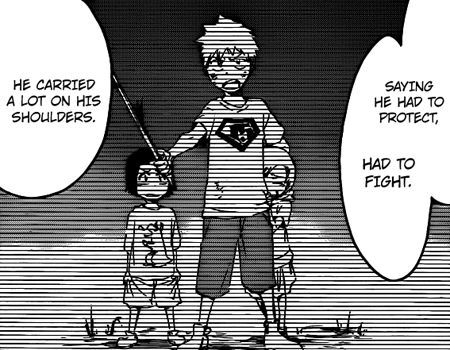

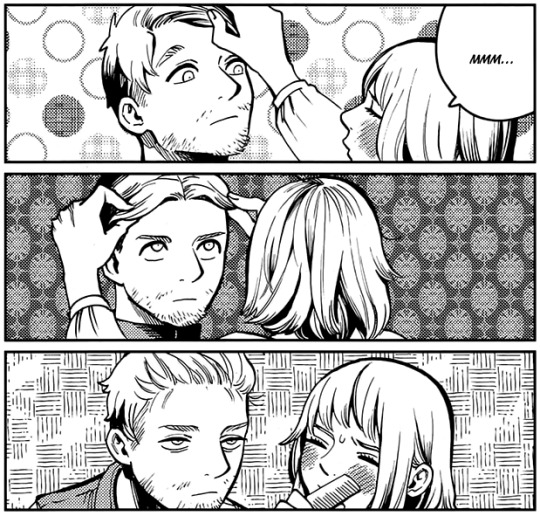
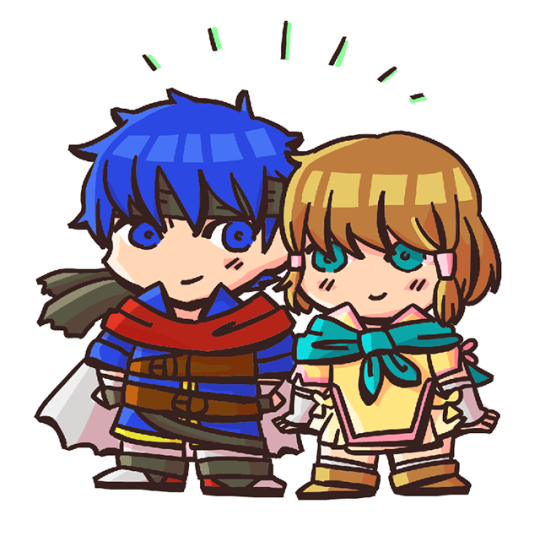
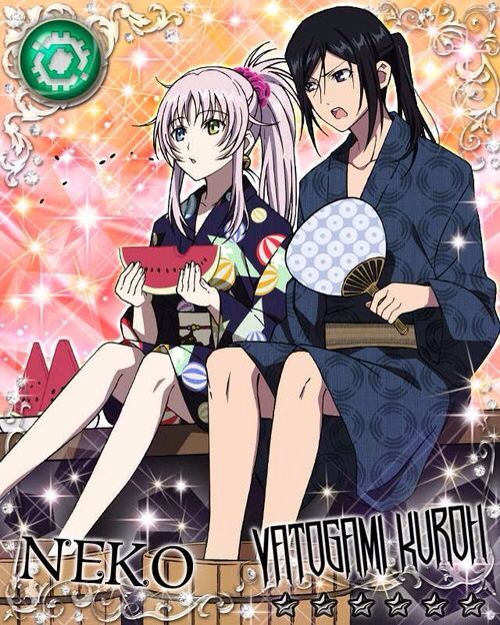


Big Brother Autism™️ with their sisters
#bleach#digimon#fire emblem#delicious in dungeon#k project#ace attorney#ichigo kurosaki#masaru daimon#laius thorden#ike#kuroh yatogami#apollo justice#yuzu kurosaki#karin kurosaki#chika daimon#farlyn thorden#mist#neko#trucy wright#twewy#daisukenojo bito#raimu bito#c:
107 notes
·
View notes
Note
Share ten different from ten different pieces of media in no particular order, then send this to ten other people.(Anon or not, your choice.)
Okay okay so, ten faves — why was this harder than I thought ( had to leave Tolkien out bc I don't wanna repost art sobs ) — this is in no particular order !
Tomoe — Kamisama Kiss

Kuroh Yatogami — K Project

Lan Xichen — Mo Dao Zu Shi
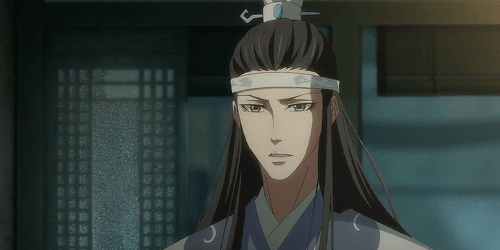
Khun Aguero Agnis — Tower of God
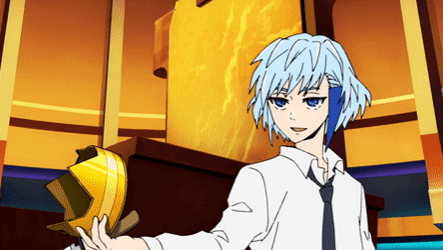
Xie Lian — Tian Guan Ci Fu

Carla Tsukinami — Diabolik Lovers

Doppo Kannonzaka — Hypnosis Mic

Rochefort — Musketeer: Le Sang Des Chevaliers
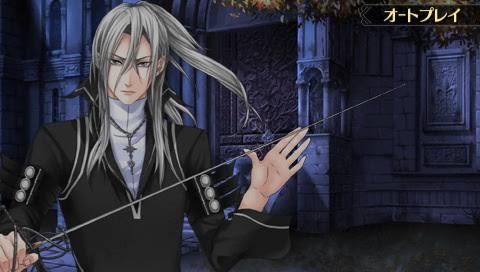
Light Yagami — Death Note

Lord Shen — Kung Fu Panda 2
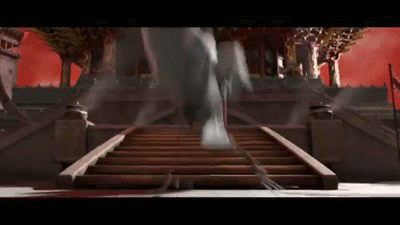
#— ꒰🌺꒱ 𝐛𝐥𝐨𝐬𝐬𝐨𝐦𝐬 ៸៸ mina🌻 ❜‧₊#tomoe#kuroh yatogami#khun aguero agnis#lan xichen#doppo kannonzaka#xie lian#carla tsukinami#lord shen#rochefort#light yagami
23 notes
·
View notes
Photo
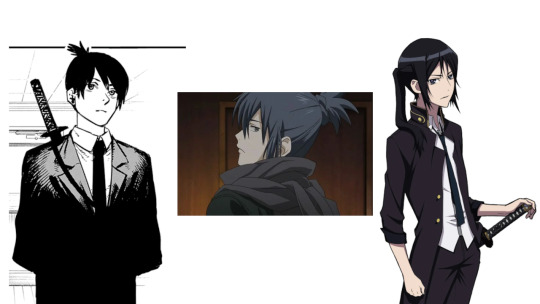
they’re the same man your honour
#the grip these men have on my life HONESTLY#turns out i do have a type#chappyposting#aki hayakawa#nezumi#kuroh yatogami#csm#n6#k project#chainsaw man#no 6
25 notes
·
View notes
Text
Kuroh, at Yukari's funeral: I need a moment with them.
Everyone at the funeral: Of course. *they leave*
Kuroh, leaning over Yukari's coffin: Okay, listen here you little shit. I know you're not dead.
Yukari, sitting up in the coffin: Yeah no shit.
#k project#kuroh yatogami#yukari mishakuji#incorrectkprojectquotes#silver clan#whitericeparty#green clan#jungle#havent made any yukari and kuroh posts lately#this isnt a ship post#i just think they're neat#the silliest brothers
34 notes
·
View notes
Text
I can't get over how pretty he is in his actual body omg 🥲 <3 .

AND I REALIZED HIS HAIR WAS SUPER LONG BEFORE ALL THIS HAPPENED AND HE CUT IT 😭✋🏾 .
#k project#k#yashiro isana#kuroh yatogami#neko#mikoto suoh#anna kushina#aldof k weismann#ichigen miwa#colorless king#reisi munakata#fushimi saruhiko#misaki yata#seri awashima#hisui nagare#tenkei iwafune#daikaku kokujōji#anime#rohansdisciple
51 notes
·
View notes
Text
I’m convinced one of the primary reasons Kuroh is a silver (other than of course his character development) is because if Shiro and Neko were left to their own devices nothing would get done because they’re both adhd havers and Kuroh is autistic and needs a rigid schedule.
10 notes
·
View notes
Note
You know, one of your Day Three suggestions is really fitting because it’s a friend’s birthday today so I want to ask in her stead, what would Munakata, Kuroh, Akutagawa and Hajime, Mitsuru do for their s/o’s birthday?
Wow! A super-duper belated happy birthday to your friend! Thank you so much for sending in this cute request and I am sorry it took so long to get back to you, but I hope both you and your friend enjoy the headcanons!
MUNAKATA
So, Munakata is definitely the type, in a romantic relationship, to really want to celebrate all the important dates with his partner. Birthdays, anniversaries (first date, first month together, yearly anniversaries, anniversaries of saying I love you)…honestly, he’s really kind of a sap when it comes to any sort of special date in the relationship and he remembers those dates off the top of his head, thanks to his terrifyingly excellent memory. He’ll never forget his partner’s birthday and he starts thinking of what to do for it weeks in advance.
Munakata will actually celebrate his partner’s birthday twice. He’ll want a more public birthday party for them, where they can be celebrated with the other Scepter 4 members (since it’s important to Munakata, who views Scepter 4 as both a ‘business’ and a ‘family’, to include them in his life, including his life with his romantic partner) and with the friends that are important to his partner. It won’t be over the top and lavish, since that’s not Munakata’s style, but it will be the bigger of the celebrations. On top of that, he definitely wants a more private celebration, where it’s just him and his romantic partner together for a whole day, one of the few days he’ll take off (as much as he can). What they might do that day really depends on what he thinks will make them happiest in the moment – if they seem bored, he’ll try to make it more exciting and adventurous of a day but if they’ve been swamped and seem stressed, he’ll try to make it a really relaxing day for them.
Munakata is such a bad gift-giver. Literally, so bad that it’s almost shocking. So, while he definitely gets his partner at least one gift, though usually more, they’re not great gifts. He tends to give either overly practical gifts or very eccentric or not well thought out gifts – things that he thinks they could have fun doing together that aren’t really his partner’s thing, stuffed animals that are ugly-cute at best, or gifts that he thought they would like and that boggle his partner’s mind as to how he got that impression. He always gives them flowers though, first thing in the morning on their birthday. Unless they’re allergic to flowers, in which case he gives them a bouquet of fake flowers…it’s the thought that counts.
KUROH
Kuroh is another one who really is great at remembering special dates, like his partner’s birthday. He’s not into grand celebrations and he wouldn’t be comfortable planning anything like that for his partner, even if they would like it, but he remembers their day and he does make special plans for it. He always takes time, about a week before their birthday, for him to sit by himself and really pour over every word, on tape and in his memory, that Miwa said about birthdays, and he lets himself be moved by his master’s words in how he’ll approach his partner’s birthday that year.
Kuroh is definitely the type to really want to celebrate his partner’s birthday with just him and his partner. If his partner really wants to celebrate with friends, he’ll request that they do so maybe the day after or before their actual birthday, since he wants to be a little bit greedy and have them all to himself that day. He does plan things for them to do that day and he takes care of the birthday supper and the cake all by himself. It’s the one day of the year where he won’t gladly welcome his partner into the kitchen to play sous chef for him. It just doesn’t seem right for them to have to make their own birthday meal to Kuroh, and he’ll insist on them being nowhere near the kitchen, usually drawing them a hot bath full of whatever bath additives they enjoy most while he cooks, just so that their birthday meal, made with all his love, is a surprise for them.
Kuroh doesn’t really hold much stock in material possessions or buying a lot of gifts, though he does try to get his partner something for their birthday. It’s usually something really small though, with the main gift being the experiences they share together that day, all of his undivided attention and time, and something hand-made, like the meal they’ll share together.
AKUTAGAWA
Honestly, not going to lie at all. Akutagawa is the most likely, out of everyone on this list, to completely forget his partner’s birthday. But, at the same time, just saying that he actually forgets his own birthday and the birthdays of everyone else he knows, so it’s not done out of any malice or apathy towards his partner. It’s just that birthdays really are pretty meaningless to Akutagawa, who hasn’t really ever celebrated his own birthday in any special way.
It will either be Gin, Higuchi, or his own partner who will remind him of the fact that the day is his partner’s birthday. If it’s Gin or Higuchi, Akutagawa will snap at them that of course he remembers and then quickly excuse himself…and then he’ll stress himself out a little by quickly playing damage control as he goes to grab a last-minute birthday card and a cake, which is what he assumes is what you do for a birthday. He’s really bad at gift-giving too, usually just grabbing whatever the media has told him is ‘trending’ or ‘romantic’, like flowers, jewelry, stuffed animals, candles, perfume, etc. His gifts are very generic, not really tailored to his partner, but he is trying his best.
If it is his partner that has to call him out on forgetting their birthday, there might actually be a little bit of an argument because Akutagawa will honestly feel a little guilty and embarrassed to have forgotten and this boy is horrible at dealing with his feelings and lashes out to avoid having to really do so. His partner is probably already used to that bad habit of his and hopefully won’t take his words too much to heart. He will apologize, later on, for forgetting and will try to make up for it, in whatever way his partner would like for him to do so, if it’s within his power and agreeable to him.
HAJIME
Hajime does remember his partner’s birthday most of the time. Like 99% of the time, he remembers and the other 1% is usually just him forgetting because he’s insanely swamped with work and super stressed out. However, because Hajime is a workaholic and his job will always take first priority, it’s not always guaranteed that he’ll be able to celebrate with his partner on their actual birthday. It really does depend on whether or not he can book that day off and have it approved, with nothing coming up that will change that.
If he does have to work the day of his partner’s actual birthday, he’ll still make sure to at least text message them, though he really tries hard for an actual phone call, as he does love and miss the sound of their voice. He’ll apologize for missing their birthday, ask what they’re planning to do to celebrate and will genuinely wish them a wonderful day, and will tell them that he is looking forward to a belated celebration with them on his next day off.
If Hajime ends up getting the time off, or when he does get the time off, because he normally gets several days off in a row with the way that Nanba’s schedule works, he typically plans a trip to celebrate with his partner. He likes to travel with his partner, often either as a road trip, since he loves driving and is very proud of his car or taking them on a relaxing trip to the hot springs. He’ll really make sure to try to devote his attention to his partner and to not let them see any stress or frustration he might have brought home from work.
MITSURU
Mitsuru is horrible at remembering dates, but he’s also pretty aware of that fact and does the intelligent thing. He uses technology, like the calendar app on his phone and the various social media sites he has his partner added on and lets them give him the heads up that his partner’s birthday is coming up and to tell him when it’s finally arrived. He has an alarm set on the calendar app for a month before his partner’s birthday, since he gets really busy with work (despite appearances otherwise) and needs the extra time to really plan out gifts and birthday surprises for his partner.
He definitely makes them mixed tapes/digital playlists every year, no matter how long they’ve been together, of songs that he’s heard over the last year that remind him of his partner. It’s easy to tell how many years they’ve been together – someone just has to look at how many of the playlists Mitsuru has made say HAPPY BIRTHDAY Y/N! on them.
Mitsuru is the most likely, out of all the men on this list, to really go over the top with planning his partner’s birthday celebrations. To Mitsuru, there’s no such thing as being too over the top, and since he really is so happy that his partner was born and really does love them, he thinks they deserve nothing but the most extravagant, craziest, wildest, most fun day, right from the early morning to the stroke of midnight and he will keep throwing surprise after surprise after surprise at them, from the time the clock strikes midnight on the eve of their birthday, to the time it strikes the midnight of the next day.
#event asks#k project#nanbaka#bungou stray dogs#bsd#reisi munakata#kuroh yatogami#akutagawa ryuunosuke#hajime sugoroku#mitsuru hitokoe#headcanons
16 notes
·
View notes